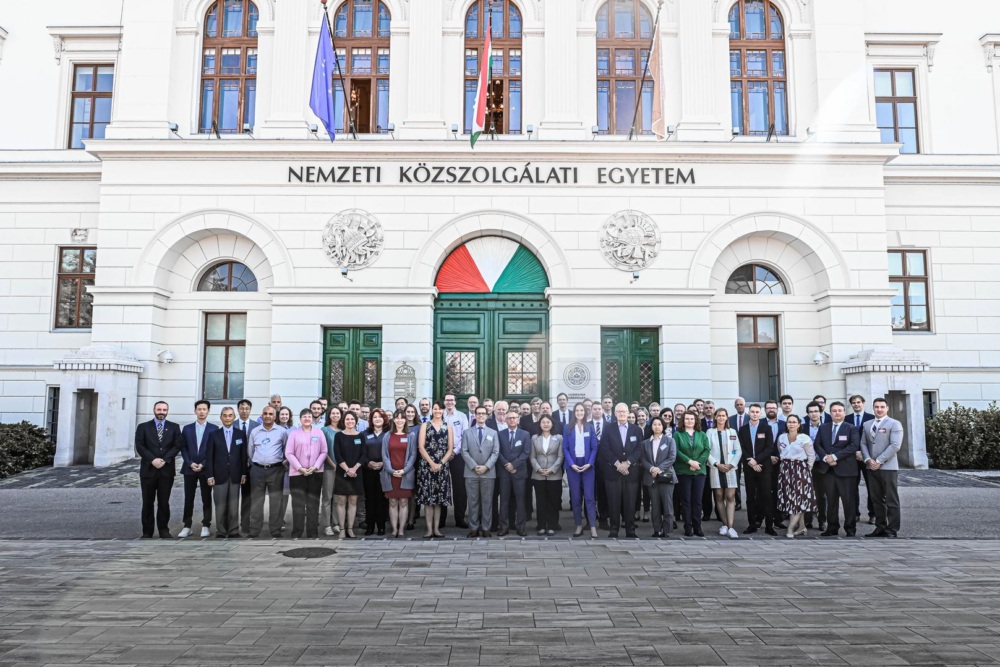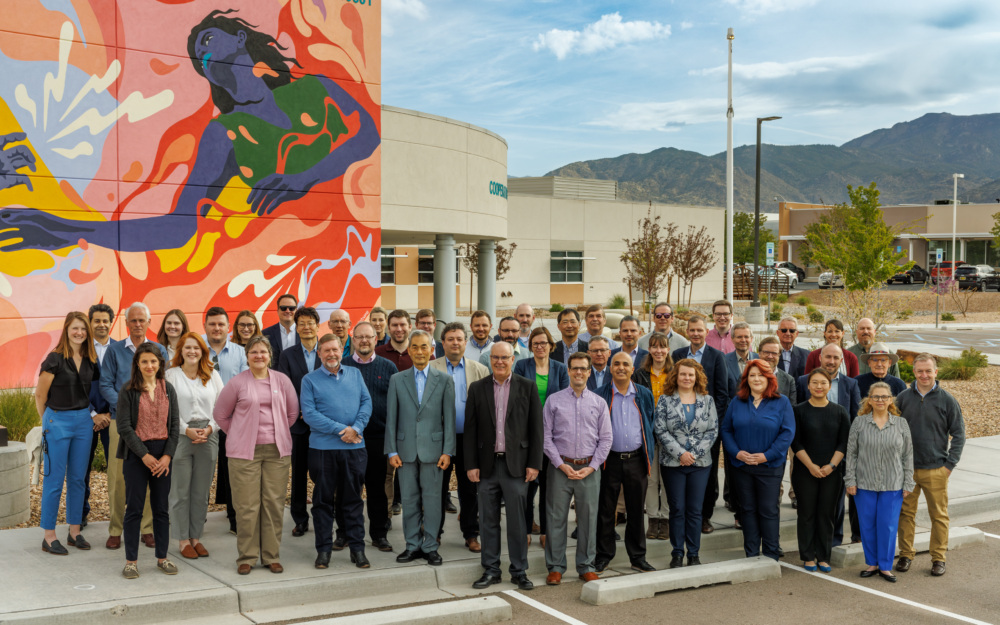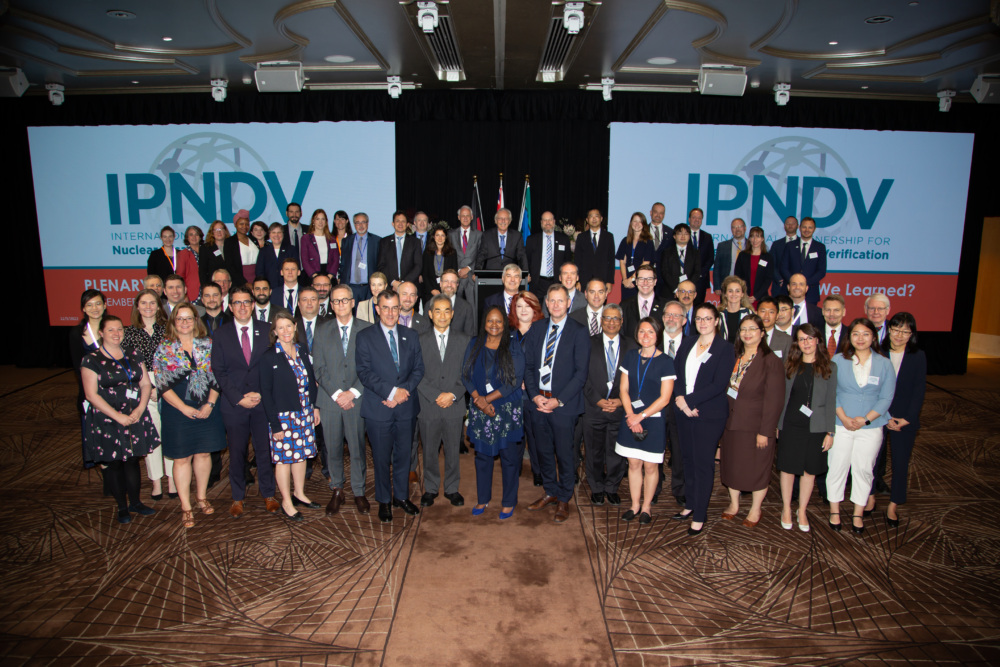
IPNDV Convenes in Budapest for Working Meeting
The International Partnership for Nuclear Disarmament Verification (IPNDV) convened its most recent working meeting in Budapest, Hungary from September 4-8, 2023.
View statement on Partnership for A Secure America
Nuclear arms control is a critical pillar of America’s national security. Negotiated agreements to reduce the threat posed by the Cold War nuclear arms race have always enjoyed strong bipartisan support in the U.S.
In 1982, President Reagan proposed that the U.S. and the Soviet Union reduce their nuclear arsenals by thousands of warheads each. This proposal became the basis for the 1991 START I treaty. Since that time, every U.S. President, in concert with Russia, has advanced President Reagan’s legacy through steady and prudent reductions of the world’s two largest nuclear arsenals, including the 2002 Treaty of Moscow, signed by Presidents Bush and Putin.
On April 8, 2010, Presidents Obama and Medvedev signed the new START treaty, agreeing to further reduce both sides’ arsenals and bring into force a new regime for inspections and verification. This was a necessary and appropriate step toward safeguarding our national security. Without the new START, the U.S. has no legally binding ability to conduct inspections of Russia’s nuclear arsenal, and would be in a far weaker position to lead the world in stopping nuclear proliferation.
Now is the time for a thorough and balanced national discussion about nuclear arms control and nonproliferation. But we must remember that a world without a binding U.S.-Russian nuclear weapons agreement is a much more dangerous world. We, the undersigned Republicans and Democrats, support the new START treaty because we believe that it:
Madeleine Albright Secretary of State 1997-2001
Howard Baker US Senator (R-TN) 1967-85
Samuel Berger National Security Advisor 1997-2001
Linton Brooks Administrator, National Nuclear Security Administration 2002-07
Harold Brown Secretary of Defense 1977-81
Frank Carlucci Secretary of Defense 1987-89
Warren Christopher Secretary of State 1993-97
William Cohen Secretary of Defense 1997-2001
John C. Danforth US Senator (R-MO) 1977-95
Kenneth M. Duberstein White House Chief of Staff 1988-89
Chuck Hagel US Senator (R-NE) 1997-2009
Lee Hamilton US Congressman (D-IN) 1965-99; Co-Chair, PSA Advisory Board
Gary Hart US Senator (D-CO) 1975-87
Rita E. Hauser Chair, International Peace Institute
Carla Hills US Trade Representative 1989-93
Nancy Kassebaum-Baker US Senator (R-KS) 1978-97
Thomas Kean Governor (R-NJ) 1982-90; 9/11 Commission Chair
Richard Leone President, The Century Foundation
Donald McHenry US Ambassador to the UN 1979-81
Sam Nunn US Senator (D-GA) 1972-96
William Perry Secretary of Defense 1994-97
Thomas Pickering Under Secretary of State 1997-2000
Colin L. Powell Secretary of State 2001-05
Warren Rudman US Senator (R-NH) 1980-92; Co-Chair, PSA Advisory Board
Alan Simpson US Senator (R-WY) 1979-97
George Shultz Secretary of State 1982-89
Theodore Sorensen White House Special Counsel 1961-63
John Whitehead Deputy Secretary of State 1985-88
Timothy E. Wirth US Senator (D-CO) 1987-93
Frank Wisner Under Secretary of State 1992-93
This project is made possible by the generous support of Ploughshares Fund and The Connect U.S. Fund.
Sign up for our newsletter to get the latest on nuclear and biological threats.
The International Partnership for Nuclear Disarmament Verification (IPNDV) convened its most recent working meeting in Budapest, Hungary from September 4-8, 2023.
The International Partnership for Nuclear Disarmament Verification (IPNDV) convened its most recent working meeting in Albuquerque, New Mexico from April 24-28, 2023, hosted by Sandia National Laboratories.
The International Partnership for Nuclear Disarmament Verification (IPNDV) held its annual plenary meeting in person from December 5-9, 2022, in Sydney, Australia. This meeting of the IPNDV was generously hosted by the Australian Safeguards and Non-Proliferation Office (ASNO).

